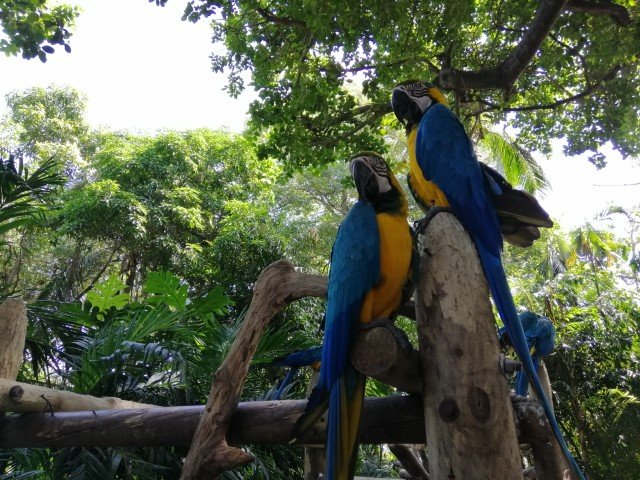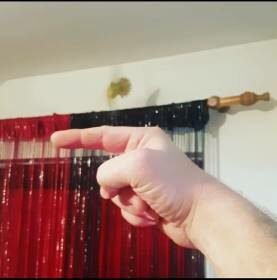When the topic of talking birds comes up, the species that ranks on the top is Parrots. Many parrots like African Greys, Amazons, Quakers, Budgies, et al are famed for their talking abilities; less or more. But what fascinates the world is the reason behind parrots’ speech abilities. Why can’t any other birds like a vulture, sparrow, or maybe, a cuckoo can mimic human speech? Are parrots naturally gifted to talk?
The answer is no. Just like human babies are naturally inclined to learn their mother tongue, parrots are adept at talking in ‘bird’s language’ only otherwise. To make them speak a foreign language like that of a human, they need to be taught. That said, not all parrots are alike when it comes to speech training abilities. Each of the species and more so, every individual bird thereon, tends to respond uniquely.
What Type of Parrots can Talk
There is no guarantee that a particular parrot species will end up talking if that species happens to be famed as talkative. The ability to learn speech is purely subjective and depends on many factors like quality of training, gender, etc. But considering the real instances, following 5 species have been considered as the best talking parrots:
- African Grey
Many researchers have proved African Grey to be one of the most intelligent birds in not only the parrot kingdom but the whole avian kingdom. They are famed to amass hundreds of words and even make sure that they use it in context. Of the two famous pet African Grey species namely the Timneh African Grey and the Congo, the former tends to learn speech at quite a young age against the latter one.
- Budgerigar
A big bird in a tiny body, budgies have been known to break world records for memorizing the biggest list of vocabulary. They are known to learn not just words but phrases too. And unlike other birds who might forget their lessons if not made to practice well, budgies are adept at revising their vocabulary by using their social and interactive skills. That said, their words are a little gravelly.
- Amazon Parrot
Many Amazon parrots tend to start mimicking their human companions’ words and phrases quite early. The reason being the social nature of these birds. They tend to form close bonds with their owner and hence pay complete attention to make him happy. In the meantime, they happen to pick some words up. If taught well, they are known to learn a good amount of words. And the speech clarity is a bonus with them.
- Indian Ringneck Parakeet
Often regarded as sacred, especially in India, these parrots are probably the only ones who can memorize long lines apart from the single words and short phrases. Centuries ago, these birds would hear spiritual yogis saying prayers in the morning and would repeat them all after them, and that too with clarity. They have since managed to maintain their fame and talent alike.
The thought of owning a Quaker scares away a few for their illegal status in some of the States. But all one needs to do is check if their state is on the banned list or not. But making them speak is as easy as tough it is to get a sanction of adopting them. They have been touted as great pet parrots for those who fancy their parrot to talk but aren’t a good speech trainer. Quakers are so adept at mimicking human speech that, more often than not, they anyway pick a few words here and there without even being taught.
At what age do Parrots start talking?
There is no talking age for parrots as such. Just like human babies talk at different ages, the same holds for parrots too. One would see a human baby talking at 5 or 6 months old, but many wouldn’t start talking until they turn 1. The speech ability is, therefore, subjective. Many parrots have been known to start talking as early as 3 months old. But many others would never utter a word all their life. Hence, there is no guarantee a parrot would ultimately talk if he has been sold luring the owner on the thought of the little bird singing songs to him daily.
Can all Parrots talk?
Just like there is no fixed age for a parrot to speak, there is no surety that eventually all parrots will talk. But can they? Yes, they are wired to do so. All the parrot species are born with an innate ability to mimic. But the key to learning the speech is to explore that ability. The best talking parrot species; African Grey, can be taken in an instance here. Not all Greys tend to speak. Only those Greys eventually learn to talk who are made to explore their mimicking abilities. Add to this, a few important aspects like:
- A talkative species like African Grey or Cockatiel holds more chances to learn to mimic quickly for inheriting the ability.
- A consistent training along with a great technique is a must to make a parrot learn speech effectively.
- A disinterested parrot would never pay attention to what he is being taught. Hence, a curious and inquisitive personality plays a vital role.
- Seemingly illogical but research has proved that male parrots tend to grasp human speech quickly against the female ones.
Which breed of Parrots talks the most?
Endemic to the rain forests of Central and West Africa, African Grey parrot breed holds the prestigious tag of being the most talkative parrot in the world. Researchers say that these parrots have the same intelligence level as a 3-year old. They can:
- Recognize objects. The record is of identifying as many as 80 objects by a Grey.
- Amass huge vocabulary. Not only memorizing, but they are also adept at using them in context and even hold conversations.
- Identify the color and shape of different objects.
- Imitating human speech to perfection.
Can I teach a Parrot to talk?
Any parrot can be taught to speak. Parrots do not have a flexible mouth like humans and vocal cords. But like a human’s voice box aka larynx, they have a syrinx. Syrinx helps them easily speak out words like humans. Thus, one can easily talk a parrot to talk simply because they can be. So how can a parrot be made to talk? Here’s a simple step-by-step guide used to teach speaking abilities to Quakers, African Grey, or any other desired parrot species.
How to teach a Quaker Parrot to talk?
Teaching a Quaker to talk is not a tough job. All one needs is a little technique and a lot of patience. And the pet bird will one eventually talk back soon. Here are the easy steps a Quaker owner can follow to make his little bird learn human speech:
- Start the training with just single words or at the most two; like ‘hello’, ‘hi’, ‘bye’, ‘welcome’, ‘good night’, ‘hi mum’, etc.
- Take one word at a time and keep repeating it. Like start with ‘hello’ and repeat the word daily. Repetition is what makes the training successful.
- Focus on speech clarity. If the parrot can hear the word properly, the word learned would be correct. Lack of clarity to the bird would result in the wrong outcome.
- Always associate the word of the day with its meaning. Like while teaching ‘good morning’, always say it while greeting the bird for the first time in the morning. Similarly, say him ‘goodbye’ while leaving home or say ‘good night’ while signing off the day.
- Don’t be pushy with the bird. Move on to the next word only when he has nailed to say and use the first one properly. But never forget to keep revising the last one on relevant occasions.
- Make a time-table for speech classes. Always take out a fixed time daily to teach the bird his daily lesson. This way, he’ll look forward to a binding time with his favorite human. But keep the class short, say, only for 10-15 minutes. This will prevent the bird from getting bored.
- Supplement the training session with some fun. Only making the parrot say what you are saying would make the bird feel the pressure and he might get scared of the process.
- Lastly and most importantly, introduce a reward system. Like humans, parrots too, like to be appreciated for their successes, however little they are. Offer the bird his favorite nut when he says the word right. And offer a toy too, as a bigger reward, when he uses the word with context.
Summing Up
No other birds than parrots have gained so much love and fame for their speech abilities. They make sure not only to learn them but to use them in a way to entertain everyone around. Supplementing their words or sounds with their antics have made them popular. And now, all of us want a companion who can be as loyal as parrots and talk back to us. Nothing is better than the fact that this all is possible with little effort and time. And the sweet result would be a talking buddy for the next 20-30 years.




